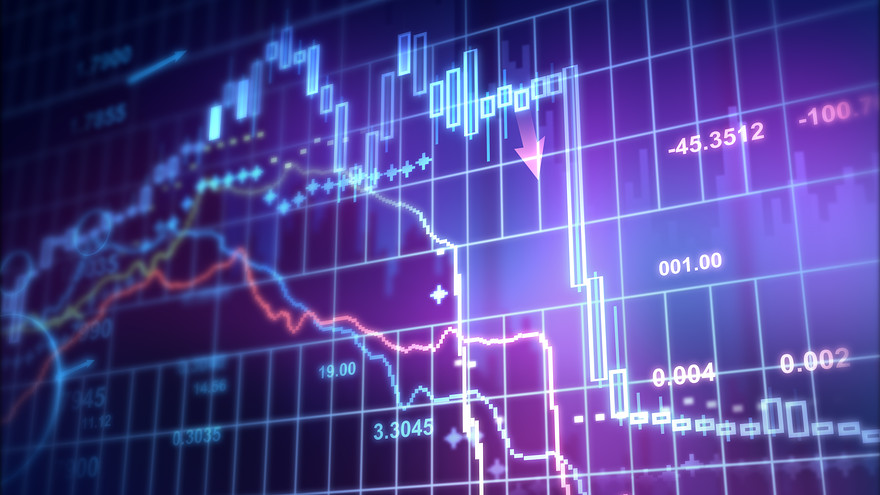
After a wobbly day of trading, U.S. stocks fell for the seventh time in eight days Monday as tech companies continued to slide. Industrial and high-dividend companies rose, and the market’s losses were limited compared with the steep losses seen last week.
Stocks opened lower Monday and repeatedly switched between small gains and losses before falling in the last hour of trading. Along with tech companies, health care, energy and retailer stocks also fell as the companies that have led the U.S. market higher this year continued to struggle.
Defense contractors L3 and Harris made the biggest gains on the S&P 500 after announcing a deal to combine. Smaller companies fared better than the rest of the market and finished broadly higher.
Jason Pride, chief investment officer for private clients at Glenmede, said that investors expect many years of powerful profit growth from technology-oriented companies like Apple, Amazon and Netflix. Over the last two weeks, Wall Street has started considering the possibility that interest rates will rise more quickly, taking a bigger chunk out of those critical future profits.
“The more the company’s valuation is dependent on some profit way ahead in time as opposed to the profits coming today, the more rate hikes should impact the valuation of that company,” he said.
Pride added that the recent downturn is a healthy development for stocks: “A five to 10 percent pullback of that magnitude is very normal and very reasonable for this market to go through,” he said.
The Dow retreated nearly 90 points, or 0.4 percent, to 25,250.55. The S&P 500 index was down 0.6 percent and the Nasdaq composite dropped 0.9 percent, while the Russell 2000 index of smaller-company stocks was up 0.4 percent.
The S&P 500 lost 4.1 percent last week, its third weekly loss in a row and its biggest since late March, as investors worried about rising interest rates and trade tensions between the U.S. and China.
The tech companies that have led the market higher in recent years, including some of the world’s most valuable companies, continued to decline Monday. Apple gave up 2.1 percent to $217.36 and chipmaker Nvidia slipped 3.4 percent to $235.38.
Netflix, which is scheduled to report its third-quarter results late Tuesday, fell 1.9 percent to $333.13. It’s fallen 20.5 percent since disclosing weak user growth three months ago.
Harris and L3 are combining to form L3 Harris Technologies, which will have annual sales of about $16 billion. That would make it the sixth-largest U.S. defense contractor and one of the top 10 globally. L3 gained 12.8 percent to $220.91 and Harris rose 11.9 percent to $173.25.
Investment pros cited mounting concerns about relations with Saudi Arabia following the disappearance and suspected murder of journalist Jamal Khashoggi, who was last seen entering the Saudi consulate in Istanbul. Several prominent U.S. executives, including JP Morgan Chase CEO Jamie Dimon, canceled plans to attend a conference in Saudi Arabia later this month. At the same time, Saudi Arabia made what Bloomberg News described as a “veiled threat” to use its oil wealth as a political weapon to those who might try to punish the kingdom for Khashoggi’s fate.
“The U.S. is less dependent on Saudi oil than it used to be, given its domestic shale production and it also exports large amounts of crude oil itself,” wrote analyst Fiona Cincotta of City Index in a research note. “Nevertheless, tempers are running high, Saudi stocks have dropped 7% over the weekend and now the country is considering economic retaliation.”
U.S. crude rose 0.6 percent to $71.78 a barrel in New York. Brent crude, the standard for international oil prices, added 0.4 percent to $80.78 a barrel in London. Wholesale gasoline edged up 0.1 percent to $1.94 a gallon and heating oil added 0.2 percent to $2.33 a gallon.
In another sign investors were nervous about stocks, gold rose 0.7 percent to $1,230.30 an ounce. And bond prices edged lower — the yield on the 10-year Treasury note rose to 3.16 percent from 3.14 percent late Friday.
Rising bond yields often lead to losses for high-dividend companies because many investors think of them as alternatives to bonds. That pattern hasn’t held up in the last few days as investors have been looking for relatively safe picks on the stock market.
On top of the tensions with Saudi Arabia, investors are growing worried that U.S.-China trade tensions are impairing global economic growth. The International Monetary Fund cut its forecast for global economic growth last week because of trade tensions and rising interest rates.
“The repercussions of trade tensions that had plagued global equity markets persist,” said Jingyi Pan, market strategist at IG in Singapore.
News that Chinese President Xi Jinping and President Donald Trump may meet has sparked hope that tensions in the trade war between the world’s two largest economies might ease. But worries about the increased tariffs the two sides have imposed on each other’s goods, a move that tends to dampen growth, are contributing to volatility in financial markets.
























